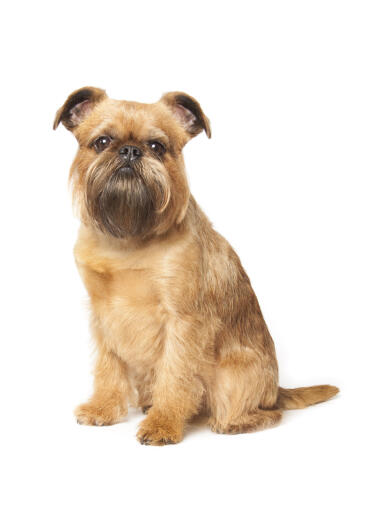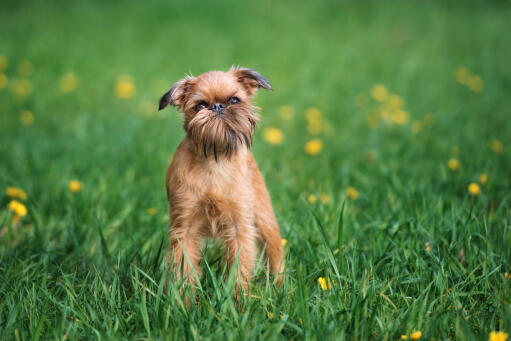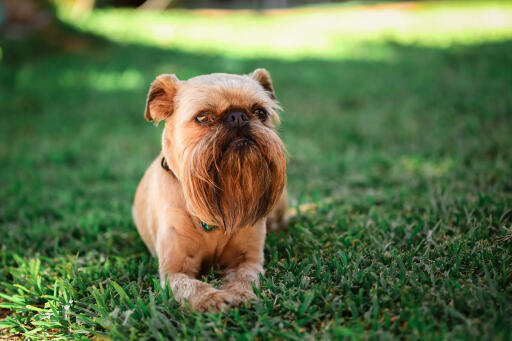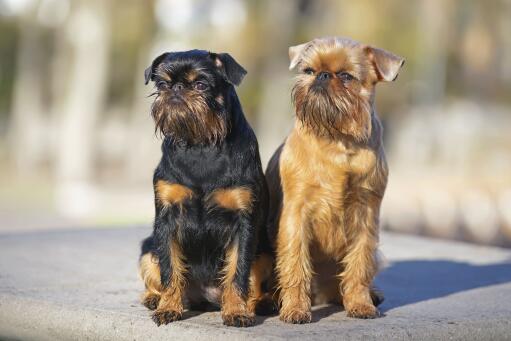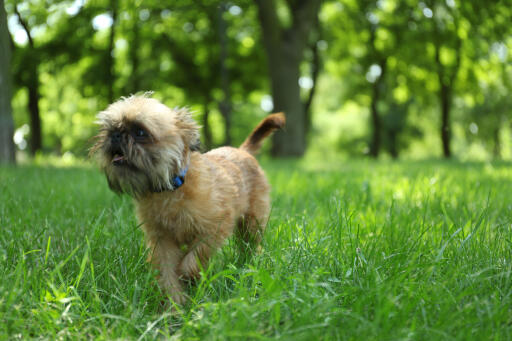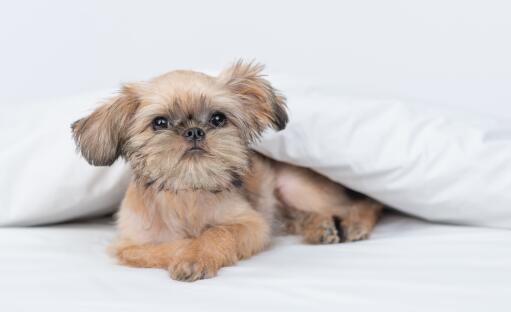Griffon Bruxellois Dogs







History
The Griffon Bruxellois or Brussels Griffon probably originates from the Dutch Smoushond which were used to eliminate vermin from houses and farms. WIth the introduction of Pug and Cavalier King Charles Spaniel blood in the late 1800's, the Brussels Griffon were developed into the breed we recognise today. After the first and second World wars, the numbers dropped to dangerously low levels, but thanks to a breeding programme in the UK, numbers slowly started to rise. They are still classed as quite rare.
Behaviour
The Brussels Griffon is a lively, affectionate and people orientated breed, who thrive with human companionship. They are amusing and cheerful and will want to spend as much time with their owner as possible. They tend to attach themselves more to one person, but can make good family pets as they are good with other dogs/cats and children within the home. They dislike being teased and can be snappy if pushed too far, so best suited to older children. They make good watch dogs and will bark when someone is at the door, but will usually welcome strangers in to the house. They have a need to be close and will want to cuddle up to you on the sofa. They can suffer separation anxiety if not accustomed to be left for short periods of time.
Due to their almost human like faces and large eyes, many Griffons are spoilt and can become fussy eaters and try to take over the home. They need consistent training to let them know who is boss and to prevent 'small dog syndrome'. They learn quite quickly and are happy to please you, so teaching them tricks enabling them to show off will make training fun. They can be very sensitive to loud noises and harsh correction, so using positive reinforcement and food rewards make for best training practices. They like to bark, so the 'quiet' command should be taught early on. Early socialisation is important as the Brussels Griffon is a plucky little thing who doesn't realise their own size. They will sometimes try and take on dogs much larger than themselves. They are notoriously tricky to house train.
The Brussels Griffon is an active, alert dog, who needs a way to let off steam. A short daily walk and plenty of play sessions throughout the day are needed to keep them mentally and physically stimulated. They don't need masses of walks, but the chance to run around off lead and play with other dogs will help their mental wellbeing as well as socialising them. Their recall is usually good, but if unsure, then best to walk them in a secure area.
Their coat needs brushing a couple of times a week to remove dead hair and stripping 3-4 times a year.
Health wise, the Griffon can suffer eye related conditions such as scrapes and cataracts. They can sometimes suffer respiratory issues.
Breed Details
- Status: Common
- Life Expectancy: 12 - 14 years
- Weight: 2-8kg
- Height: 8 - 11"
- Rare: No

